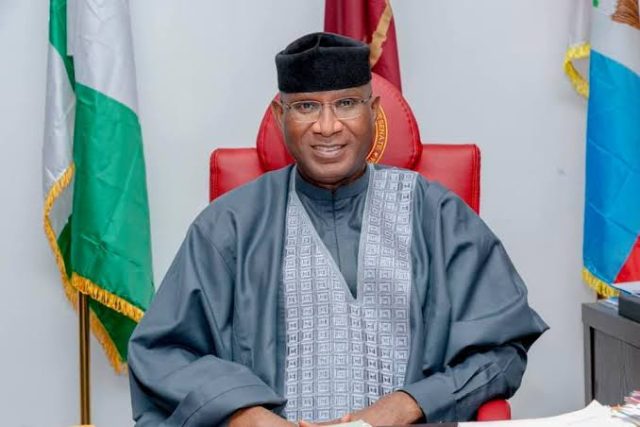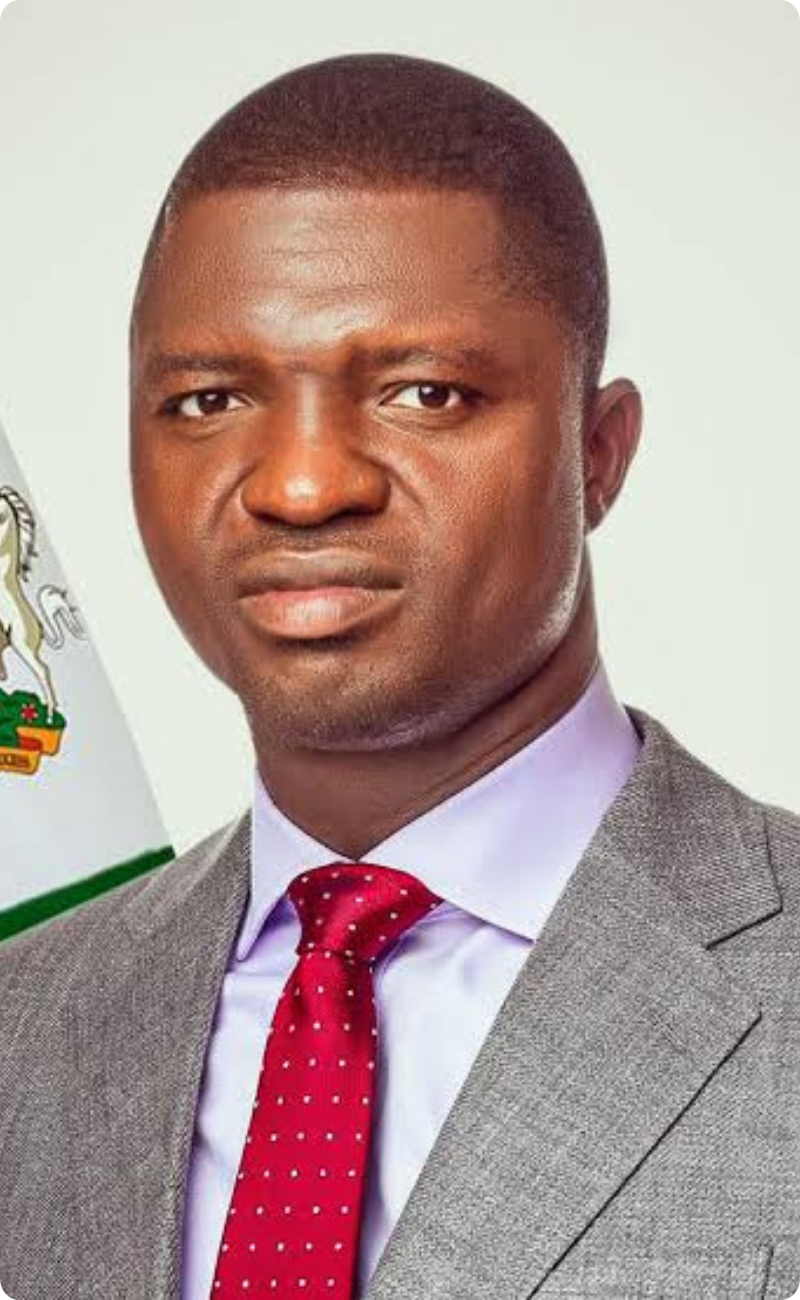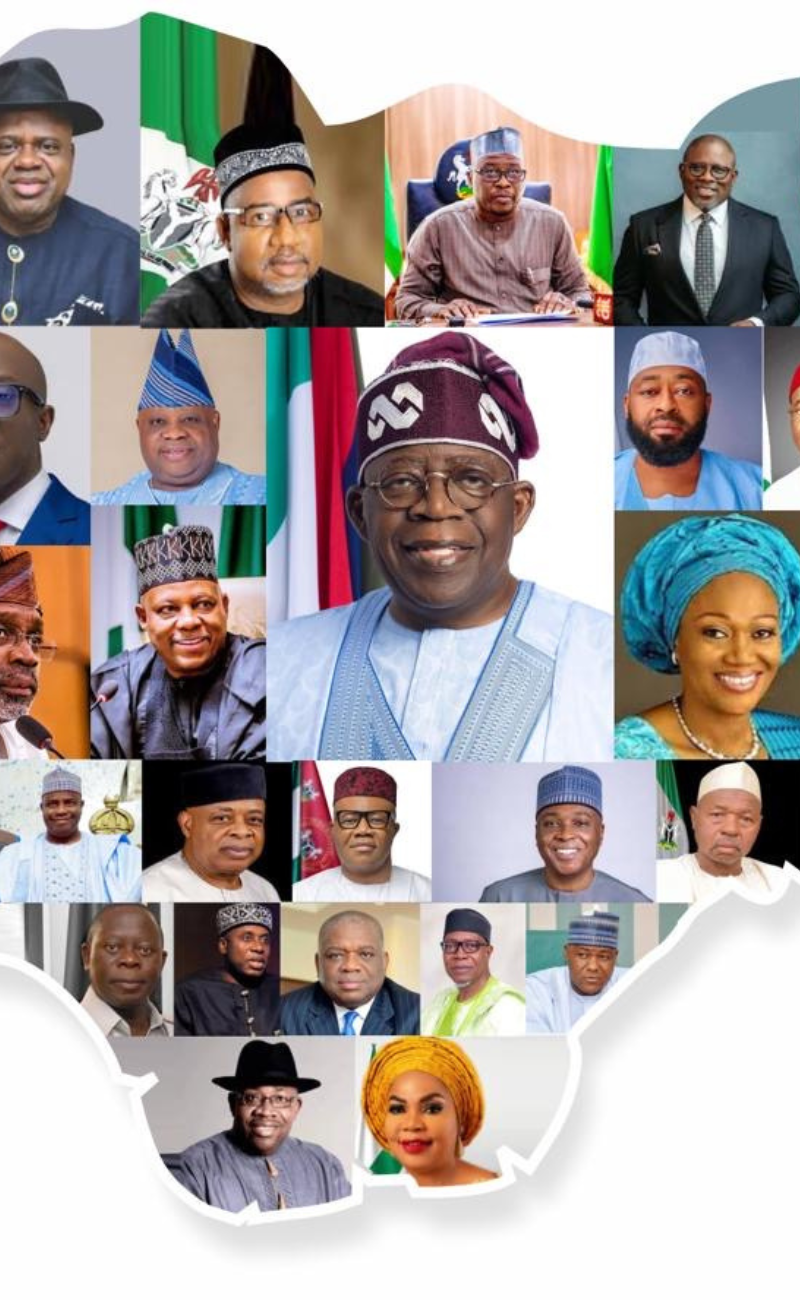In a twist of political irony, Omo-Agege is watching that structure absorb his long-time rival, Gov. Sheriff Oborevwori.

A quiet political earthquake is shaking the roots of Delta State and at the centre of the tremor stands Sen. Ovie Omo-Agege, once the undisputed face of opposition and now forced to watch as his political rival, Gov. Sheriff Oborevwori, walks into the ruling party through a door he helped build.
Oborevwori, a one-time speaker of the Delta State House of Assembly and governor under the PDP, is no stranger to political power.
But in an unexpected twist, the man who barely held off an intense post-election challenge from Omo-Agege in 2023 is now re-emerging, this time, draped in the colours of the APC and he is not coming alone.
With him are at least 22 PDP legislators from the Delta State House of Assembly, defecting en masse into the APC in what now looks like the state’s most significant political realignment in two decades.
For Omo-Agege, who led an aggressive 2023 campaign against Oborevwori on the APC ticket, this development is as politically awkward as it is significant.
In essence, the man he fiercely opposed and legally contested all the way to the Supreme Court will now be sharing the same party platform with him.
From opposition to alliance?
The realignment began subtly, with increased overtures between Oborevwori and federal APC figures but the tipping point appears to be the mass defection of the PDP legislators, which all but signals an impending shift in control of the state assembly.
With Oborevwori’s move into the APC, it could mean that Delta’s entire executive-legislative machinery – governor and assembly may now be under the APC umbrella. So it is fair to say that Delta State now belongs to the APC.
With a sitting governor and a now-tilted state assembly at his back, Oborevwori enters the APC not as a guest, but potentially as a new landlord.
That leaves Omo-Agege, who once towered over Delta’s opposition landscape, facing a difficult truth: in politics, today’s opponent can become tomorrow’s kingmaker or threat.
The builder now watching from the sidelines
Sen. Ovie Omo-Agege did not just rise within the APC ranks, he was instrumental in turning Delta State into a viable political battleground for the party.
Before his emergence, the APC in Delta was fractured, marginal, and barely capable of mounting serious opposition to the long-dominant PDP.
Omo-Agege’s elevation to deputy senate president (2019–2023) changed that trajectory. As the highest-ranking APC politician in the South-South, he gave the party both visibility and leverage.
He used his position in the senate to attract development, push federal influence, and more importantly, build strategic alliances that empowered the APC structure back home.
Under his watch, formerly warring APC factions in the state were brought under a centralised leadership with Omo-Agege as the face of the party’s rebirth.
By the time he declared for governor in 2023, Delta APC was no longer a shell party, it had grassroots mobilisation, strong campaign funding, and a real electoral structure.
Omo-Agege’s governorship campaign, though ultimately unsuccessful, was the most formidable APC challenge the PDP had faced in Delta State in over two decades.
He pulled PDP foot soldiers into the APC, deployed federal goodwill, and raised the political stakes.
Now, in a twist of political irony, Omo-Agege is watching that structure absorb his long-time rival, Gov. Sheriff Oborevwori, a man he fought bitterly in the last election and accommodate him through a door he helped build.
A silent PDP funeral
The PDP, long the dominant party in Delta, may have just read its last rites. The coordinated defection of its lawmakers signals more than discontent but also signals collapse.
APC’s growing grip
The developments in Delta echo a broader national trend where the APC, already dominant in the 10th senate, is widening its tent at the expense of fractured opposition parties.
Sen. Ned Nwoko from Delta North earlier dumped PDP for APC just months ago. Sen. Suleiman Kawu Sumaila exited New Nigeria People’s Party (NNPP) for APC in April.
Both senators claim they joined the ruling party due to internal crises in their original platforms.
The 10th senate has become a revolving door of political migrations, with APC as the destination of choice.
Delta’s shift is merely the latest but perhaps the loudest drumbeat in that migration.
Who leads now?
Now, with an APC-friendly governor and state assembly in Delta, the party stands to benefit from increased grassroots and subnational influence in the Niger Delta, a region of strategic electoral and economic importance.
However, this growing dominance also comes with a risk – intra-party conflict. The brewing tension between long-time APC stakeholders like Omo-Agege and new entrants like Oborevwori may lead to internal factionalism, particularly as the 2027 elections draw nearer.
The APC gains in numbers, yes. However, the question now turns inward: who leads the party in Delta? The one who built the platform from opposition, or the one who captured the government house?
This is not just a battle of egos; it’s a clash of legitimacy. Omo-Agege brings loyalty and legacy; Oborevwori brings office and influence and in Nigerian politics, power often trumps pedigree.
The calm before a storm?
For now, the defections are being celebrated as wins for the APC but what happens when the old guard and the new settlers start competing for the same space?
The risk is not just in numbers rather in balance.
Delta is no longer just a state to watch but a battleground of old rivalries, strange bedfellows, and unfinished political wars and right in the middle is Omo-Agege, watching his carefully crafted empire being reassembled without him at the centre.


